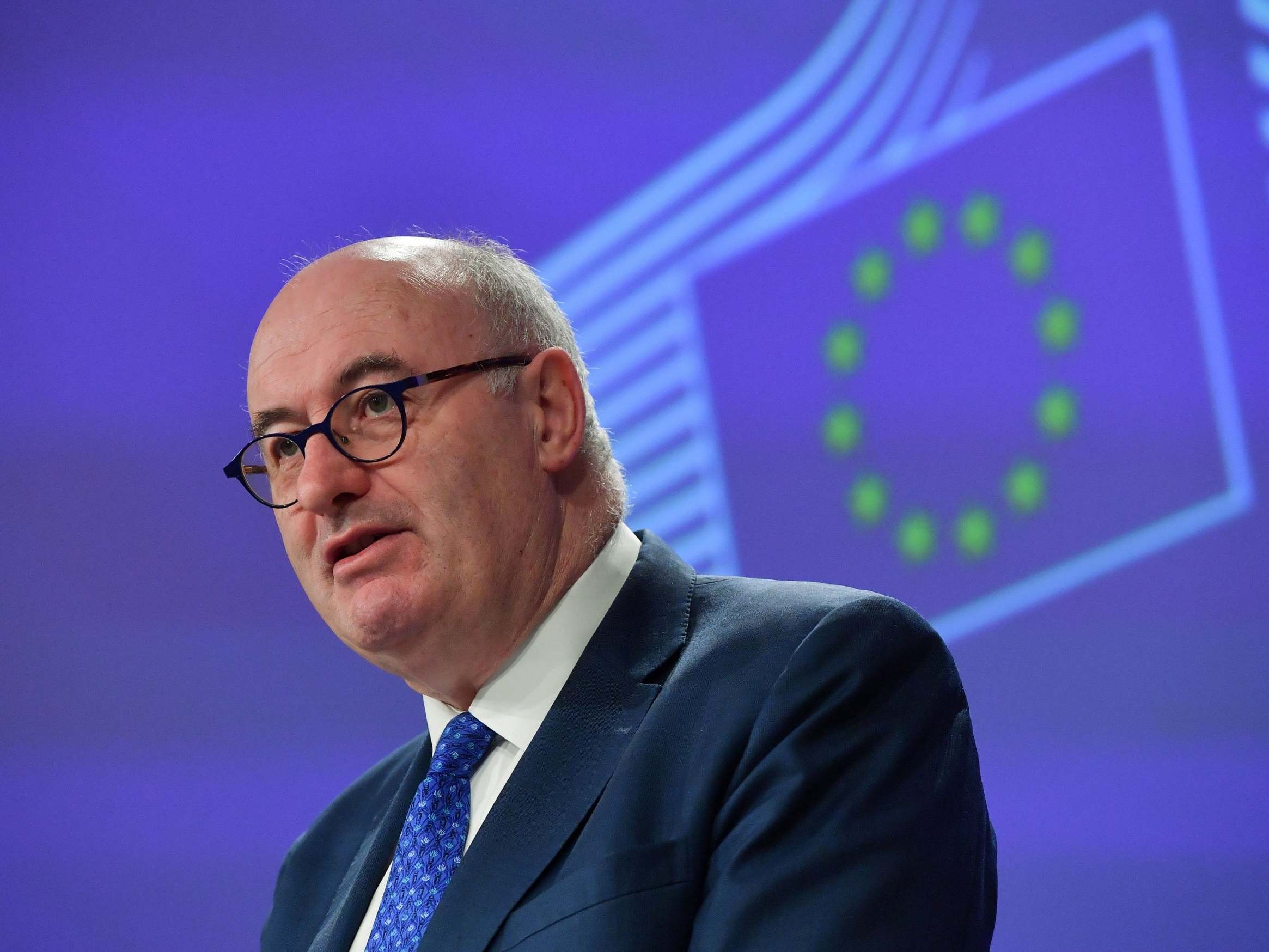Your support helps us to tell the story
From reproductive rights to climate change to Big Tech, The Independent is on the ground when the story is developing. Whether it's investigating the financials of Elon Musk's pro-Trump PAC or producing our latest documentary, 'The A Word', which shines a light on the American women fighting for reproductive rights, we know how important it is to parse out the facts from the messaging.
At such a critical moment in US history, we need reporters on the ground. Your donation allows us to keep sending journalists to speak to both sides of the story.
The Independent is trusted by Americans across the entire political spectrum. And unlike many other quality news outlets, we choose not to lock Americans out of our reporting and analysis with paywalls. We believe quality journalism should be available to everyone, paid for by those who can afford it.
Your support makes all the difference.The British and Irish governments are both eyeing a return to the EU’s original Brexit backstop plan, rejected by Theresa May, as a way of breaking the deadlock, reports suggest.
The so-called “Northern Ireland-only” backstop was rejected by the former prime minister during talks because it put a customs and regulatory border down the Irish sea – a move strongly opposed by the DUP and many Tories.
It was replaced in the withdrawal agreement by the current UK-wide backstop – which was rejected by Brexiteers for another reason: because it could tie the whole UK to the EU customs union indefinitely.
But the BBC’s Newsnight programme reports two senior Tories familiar with Boris Johnson’s thinking who are “convinced” the new prime minister is eyeing a return to the old plan.
Furthermore, the EU – and notably Ireland – has signalled that such a change back to the old backstop might be a good solution.
In an interview with the Irish Times, Ireland’s EU commissioner Phil Hogan – who is set to be put in charge of trade talks with the UK – said the direction of travel was towards the old backstop.
“Yes,” he replied when asked whether it was back on the agenda. “The taoiseach has indicated in the last 24 hours that the Northern Ireland-only backstop is quite an interesting idea to revisit.”
He added: “I remain hopeful that the penny is finally dropping with the UK that there are pragmatic and practical solutions can actually be introduced into the debate at this stage – albeit at the eleventh hour – that may find some common ground between the EU and the UK.”
British officials in Brussels flatly deny that there is any intention to return to the original backstop. A UK spokesperson said that “any deal must involve the abolition of the anti-democratic backstop”.
But recent moves by the UK do suggest that even if the original EU plan for a Northern Ireland-only backstop is not copied wholesale, the principle underpinning it – that the backstop does not apply to Ireland – could return.

The prime minister’s chief negotiator David Frost has been shuttling back and forth between Brussels for weeks now engaging in talks. One thing to come out of those discussions is that the UK is now apparently willing to accept regulatory alignment between Northern Ireland and Ireland on agricultural products – technically known as SPS (sanitary and phytosanitary).
Whether such alignment would necessarily be part of the plan to replace the backstop for other areas – like manufactured goods – is less certain, however. Talks have not yet reached that stage. Any movement in the discussions will be followed closely in the UK, where the situation is politically explosive.

One UK official was keen to stress that plans for agricultural alignment were different to the original backstop because the UK had worked out plans to strengthen Northern Ireland’s say in the arrangement.
“Agrifood is increasingly managed on a common basis across the island of Ireland and we are ready to recognise that reality,” they told The Independent.
“So we are having exploratory discussions on how an all-island approach to SPS might work. It is worth remembering that agriculture and food is the largest single sector of cross-border trade.”
The official added: “We are committed to the GFA [Good Friday Agreement] and to ensuring that communities have a say over how they are governed and the rules that they implement. So we are looking at how we can strengthen this commitment in the agreement.”
A return to something resembling the Northern Ireland-only backstop could ultimately make sense politically for Mr Johnson, given he may no longer have to rely on DUP votes for a majority after a general election – if he wins a majority, as polls suggest is possible. The DUP’s opposition to a border in the Irish sea would no longer be as much of an issue.
The change would also technically allow Mr Johnson to claim he had ditched the current backstop, which he has put down as a red line.
Whether moving back to a Northern Ireland-only situation would be accepted by Tory Brexiteers as satisfactory is another matter. While the DUP were the biggest objectors to the backstop, many Tory MPs followed their lead and Theresa May herself said she could not accept it. It is also tarred by association with her administration. But the prime minister’s options are limited in a negotiation that has already seen off his predecessor.

Join our commenting forum
Join thought-provoking conversations, follow other Independent readers and see their replies
Comments